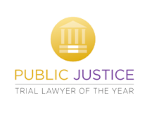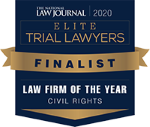Trust a DLG For Me Civil Rights Lawyer
Civil rights abuses undermine the core values of democracy. DLG For Me demands justice every day for survivors of civil rights abuse.
If your civil rights are abused, you can file a private lawsuit to recover the damage the civil rights violation caused.
There can be several different investigations and lawsuits that often arise from the same incident.
Even if an agency investigation or criminal trial is pending, you might still be able to file a civil lawsuit to get relief for the physical, financial, and emotional costs that come with having your civil rights violated.
We believe both law and justice matter. We help people seek justice when their civil rights are abused.
Contact a DLG For Me civil rights lawyer for a free consultation into your case because civil rights law is complicated, and we have the experience to help you get your life back.
Civil Rights vs. Civil Liberties
Civil rights are legal provisions that ensure people receive equal treatment without discrimination based on race, gender, sexual orientation, age, national origin, physical ability, race, and religion.
Each civil rights law contains its own protected groups, and not all civil rights laws protect the same demographic groups.
Civil rights protect people in various settings, including education, politics, law enforcement, employment, and housing, among others.
Civil liberties, on the other hand, arise from the promises made in the Bill of Rights to the U.S. Constitution.
Civil liberties are those such as the freedom of speech or freedom from unlawful searches and seizures.
The Civil Rights Act of 1964 is the most prominent modern civil rights law, and prohibits discrimination based on "race, color, religion, or national origin" in public establishments where interstate commerce occurs or the government provides financial support.
Several laws prohibit discrimination in employment, including Title VII, the Age Discrimination in Employment Act, the Americans with Disabilities Act, and the Genetic Information Nondiscrimination Act.
More laws prohibit discrimination based on gender identity, sexual orientation, domestic violence status, political activism, HIV/AIDS, and military or veteran status.
Examples of Civil Rights Violations
It's challenging to determine when your rights have been violated despite your gut feeling that the employer went too far or the government agency treated you differently because of the way you look.
You may not feel like you can prove your case.
It is easy to feel that you are against an obstacle too big and too powerful to overcome, even when you’re angry and hurt.
Discrimination and Harassment in the Workplace
The Equal Employment Opportunity Commission (EEOC) enforces federal anti-discrimination laws, including:
- Title VII of the Civil Rights Act of 1964
- The Civil Rights Act of 1991
- The Age Discrimination in Employment Act of 1967 (ADEA)
- The Equal Pay Act of 1963 (EPA)
- Title I and Title V of the Americans with Disabilities Act of 1990 (ADA)
- Sections 501 and 505 of the Rehabilitation Act of 1973
- Title II of the Genetic Information Nondiscrimination Act of 2008 (GINA)
Filing a workplace discrimination case can be downright intimidating because the employer is in a position of power and the laws that apply are confusing.
DLG For Me has the experience and skills to protect employees from retaliation and get them the compensation they deserve after experiencing workplace harassment and discrimination.
If you have been a victim of workplace discrimination, contact DLG For Me today for a free, confidential consultation.
We will help you determine the best path to justice.
There are many ways employers can violate employees’ civil rights.
You should document any harassment, discrimination, or retaliation by an employer.
The law forbids employers from retaliating against employees for reporting harassment or discrimination.
Examples of prohibited workplace practices
Under the U.S. Constitution, people working in the U.S. have a right to be free from workplace harassment and discrimination.
When an employer’s discriminatory or harassing tactics cause workers harm, those employees have legal options.
Prohibited employment practices include:
- Firing, demoting, or not hiring an employee for reasons unrelated to job performance or qualifications
- Retaliating against employees for reporting discrimination in the workplace
- Unreasonably asking for immigration documentation
- Firing or refusing to rehire an employee because of military service
- Denying accommodations for disabilities, including prohibiting employees from using a service animal at work
- Sexually harassing employees or allowing sexual harassment to occur at work
Some civil rights violations require you to file a claim or complaint with the appropriate federal or state agency before filing a private lawsuit.
For these agencies, claims have strict deadlines, and DLG For Me can help you through the process.
For example, before bringing a private lawsuit, an employee alleging employment discrimination must submit a complaint (referred to as a charge) to the EEOC within 180 days of the offense.
The employee can file a civil lawsuit only after receiving a "right to sue" letter from the EEOC after the EEOC has determined a civil rights violation probably occurred.
A DLG For Me civil rights lawyer can help you navigate this process and ensure your filings are timely and complete.
Discrimination in Schools and Educational Programs
Discrimination in education is a civil rights violation.
When a person or entity denies people full educational opportunities based on their age, disability, gender, national origin, race, or religion, discrimination in education occurs.
There are several federal laws that prohibit discrimination in educational programs that receive federal assistance from the U.S. Department of Education.
Federal civil rights laws extend to all educational programs and facilities that receive funding from the U.S. Department of Education, including colleges and universities, state education agencies, and elementary and secondary schools.
Title VI of the Civil Rights Act of 1964
Title VI of the Civil Rights Act of 1964 prohibits discrimination based on race, color, or national origin in any program or activity that receives federal funding or financial assistance.
Under Title VI, covered programs cannot use procedures criteria, or methods of administration that appear neutral but have a discriminatory impact because of race, color, or national origin.
Title IX of the Education Amendments of 1972
Title IX of the Education Amendments of 1972 prohibits discrimination based on sex.
Under Title IX, educational institutions risk losing federal funding when they do not provide equal opportunities for each gender, including financial assistance, athletics, classes, student health insurance, and employment.
Sexual assault and harassment are also Title IX violations.
The Rehabilitation Act of 1973 and Americans with Disabilities Act of 1990
Section 504 of the Rehabilitation Act of 1973 and Title II of the Americans with Disabilities Act of 1990 prohibit discrimination based on disability.
Section 504 requires schools to make reasonable accommodations to provide equal access to students with disabilities.
Under ADA Title II, schools must ensure disabled students access to all of its educational benefits, services, and programs.
Age Discrimination Act of 1975 and Age Discrimination in Employment Act of 1967
Age Discrimination Act of 1975 prohibits discrimination based on age, with certain exceptions, in programs and activities that receive federal financial assistance.
The Age Discrimination in Employment Act of 1967 prohibits discrimination against people over age 40 in employment decisions.
Harassment or Discrimination in Housing
It is illegal to discriminate against someone seeking a home or mortgage.
The Fair Housing Act protects people from discrimination when seeking to buy or rent a home, get a mortgage or housing assistance, or engaging in other housing-related activities.
Federally-assisted housing has enhanced protections for residents.
The Fair Housing Act prohibits discrimination based on race, color, national origin, religion, sex, gender identity, sexual orientation, familial status, or disability.
When an owner or landlord discriminates against a protected class in the sale or rental of housing property, they are violating the Fair Housing Act.
Discriminatory Housing Practices
Oftentimes discriminatory actions in housing are difficult to pinpoint because those who violate the law are adept at normalizing their discriminatory behaviors.
If you suspect that a seller, landlord, or mortgage lender is discriminating in providing housing or housing-related information, you might have a claim for compensation.
- Refusing to rent or sell housing
- Refusing to negotiate for housing
- Making housing unavailable
- Setting different terms or conditions for sale or rent of housing
- Providing a person different housing services or facilities
- Falsely denying housing is available for inspection, sale, or rent
- Publishing a statement or advertisement indicating a discriminatory preference regarding sale or rental of housing
- Charging a different price for housing
- Requiring different qualifications or fees for sale or rental of housing
- Evicting a tenant
- Harassing a person
- Failing to provide maintenance or repairs
- Assigning a person to a segregated building or neighborhood
Similarly, the Fair Housing Act prohibits mortgage lenders from taking the following actions based on a discriminatory purpose:
- Refusing to provide a mortgage loan or other financial assistance for housing
- Refusing to provide information regarding mortgage loans
- Imposing different terms or conditions, such as different interest rates
- Changing appraisal values for housing
To determine whether you have been discriminated against and what your best options are, contact DLG For Me for help.
We have the experience and resources necessary to take on those who take advantage of their positions of power to deprive protected classes of their rights.
Discrimination in a Public or Commercial Setting
The federal government has a public policy to prevent discrimination against protected groups in places of public accommodations.
The Civil Rights Act of 1964 and the Americans with Disabilities Act prohibit discrimination in public accommodations based on race, color, religion, national origin, or disability.
The federal government does not prohibit discrimination based on age, sex, sexual orientation, or gender identity, but some state laws extend protections to these groups.
The two kinds of public accommodations, or settings, are government-owned or operated facilities and privately-owned or operated businesses and services.
Government-owned settings include libraries, parks, courthouses, and other government buildings.
Privately-owned settings include retail stores, restaurants, hotels, and transportations services, among many others.
Houses of worship are typically not considered public settings, except that when they are rented out for a public, non-religious purpose, they are deemed public during the rental period.
Your remedies for civil rights violations depend on the setting where they occur and the identity of the wrongdoer.
A DLG For Me civil rights lawyer can help you determine your rights and the best options for getting justice when you have experienced civil rights abuse.
Section 1983 Claims
Section 1983 is a federal law that provides people access to the courts when their civil rights have been violated by a state or local government official “acting under color of law.”
The statute only applies to government officials acting in their official capacities.
Examples of Section 1983 claims include:
- Police misconduct and excessive force
- Free speech violations in government offices or public schools
- Deliberate indifference to inadequate prison conditions
While federal government officials are not included under Section 1983, there are separate laws that allow claims against them under certain circumstances.
DLG For Me attorneys have extensive experience with Section 1983 claims and have achieved landmark victories in civil rights cases.
If you believe your civil rights were violated, contact us today for a free, confidential consultation because your time to file your case is limited.
Remedies in Civil Rights Lawsuits
Depending on your individual claim, you might get financial compensation for your losses.
Compensable financial costs can include:
- Medical bills
- Lost wages
- Property damage
- Pain and suffering
The court can also order an institution to change its policies so they aren’t discriminatory in the future.
If your civil rights have been abused and you want justice, call a DLG For Me civil rights lawyer for a free consultation because we can help you get your dignity back.
Filing a Civil Rights Lawsuit
Your civil rights claims will depend on the type of violation, where the incident occurred, and the identity of the defendant.
In civil rights cases, it is urgent that you contact a lawyer quickly because there are strict timelines and procedural hurdles that must be dealt with.
If your civil rights have been violated, you can either file a complaint with the government agency involved or file a civil lawsuit.
However, in some cases, you are required to file a complaint with the agency before proceeding with a lawsuit.
The system can become so confusing that people give up on their claims before finding out what they’re truly worth.
If you believe your civil rights have been violated, DLG For Me can help you navigate the system, get back your dignity, and get you the compensation you deserve.
Contact DLG For Me today for a confidential and free consultation because some claims have very short filing deadlines.
Check out the following article to learn more about how a civil rights lawyer might approach civil and political rights.

$500 Million+
Won in 2020 Alone
Free Civil Rights Case Review
Top-Rated & Reviewed
DLG For Me Awards and Recognition





